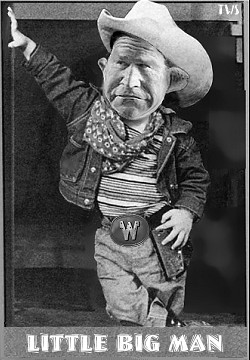
He was my favorite writer. Clear, honest, and deeply personal. I was always moved by his writing about his cold, emotionally barren childhood, and his deep and abiding pain over the loss of his 20-year-old daughter Lee:
The morning our 20-year-old daughter Lee took sick with her last illness, I was trying to write a letter of sympathy wondering what I could say, asking myself if it would make any difference.
Five days later I knew. It made a difference.
I discovered it was better to reach out than turn away, to say the wrong thing than say nothing.
But in living through Lee's loss and others I also discovered I had something to say to others who suffered the loss of someone they loved.
Pain is better than forgetting.
It is almost eighteen years but Lee is still with us. The pain is not so much lessened as it has become familiar, like the pain that continues in the leg that has been amputated. Her death is part of us.
I steel myself pretty well for the expected moments of pain. Her birthday in March, her deathday in August, Thanksgiving, Christmas, even, these days, listening to an Albinoni oboe concerto knowing it is not her practicing in the next room.
But there is no protection from the blindside hit. Lee waves from a passing car. She appears ahead of me on a street in Sienna, wearing a backpack, I rush to catch up with her but she turns a corner and is gone.
She stands in the shadows, just outside the living room. I hear her counsel when I have a problem and pay attention. At the concert I sit beside her in the center of the orchestra as she invited me to sit beside her during an orchestral rehearsal at the University of Massachusetts and we are again surrounded by music.
It is not all tears. We laugh at the same old jokes - and some new ones. Every submarine sandwich I eat, I share it with Lee. It was her favorite.
When I was dying in a heart attack, Lee stood - in the blue jumper she had made - waiting at the end of a brightly lit tunnel, smiling.
But, I often say in a letter of sympathy, people will want you to get over it, snap out of it, buck up, forget.
Of course we have to get on with life, to find salvation in routine that suddenly seems trivial, to fulfill our responsibilities to the living. But not to forget.
It would be the most terrible sadness if the memory of that person who has died were erased.
It is far better to remember, to mourn, to weep, to rage, than to allow the one who is gone to disappear.
In a way I welcome the pain. I hurt; I remember.
So, I say in my sympathy letter, they should learn to accept the pain, even in a way welcome it, by comparing it to the terror of forgetting.
And as an elder of the tribe who has experienced loss, I write for them to remember in their own way, to mourn in their own way, to do what would be appropriate for the person who has gone, and, more important, to do what needs to be done for the living.
I could sleep on the floor of the waiting room as I slept in battle. Minnie Mae could not sleep. No right, no wrong.
The night Lee died we went to a musical in which her sister was appearing in the chorus. Lee would have wanted that, no matter if others approved.
We - her immediate family - chose cremation because it was what we thought she would have wanted and it was, we discovered what each of us wanted for ourselves. We paid no attention to the relative who said, "I don't know how you could burn her up."
We did what we had to do.
We could not handle a formal funeral, bringing the family from afar, after her quick dying, so we had a private service at the grave side.
I wept - frequently - and Minnie Mae did not. No guilt, no public measuring of pain. I dream of Lee and Minnie Mae does not. That does not mean that one of us mourns more deeply than the other. No guilt. No keeping score.
We love in our own way; we grieve in our own way.
And in this terrible loss we have found strength. When we are tested by other events, we have a measure of our ability to survive.
And we were also reminded that life is fragile.
In my letters reaching out I tell others what Lee's passing taught us: to listen to each other and to ourselves, to live the gift of life with caring and celebration. Today. Right now.
Obituary, Boston Globe: Columnist Donald Murray dies at 82
Pulitzer winner penned Globe's 'Now and Then'



















































